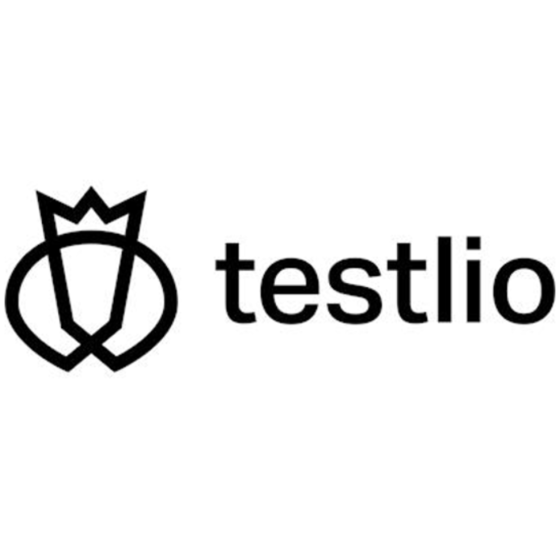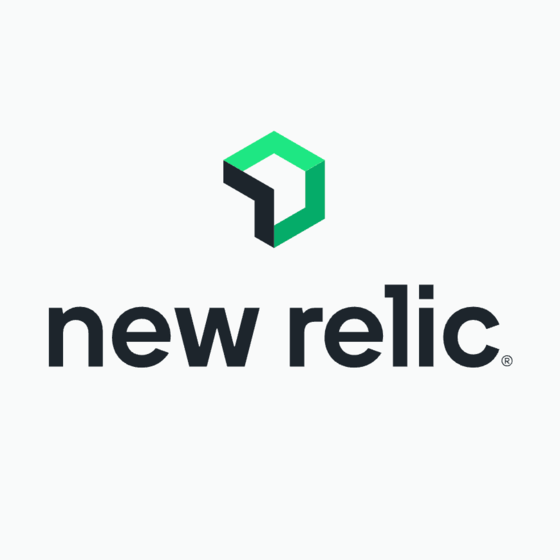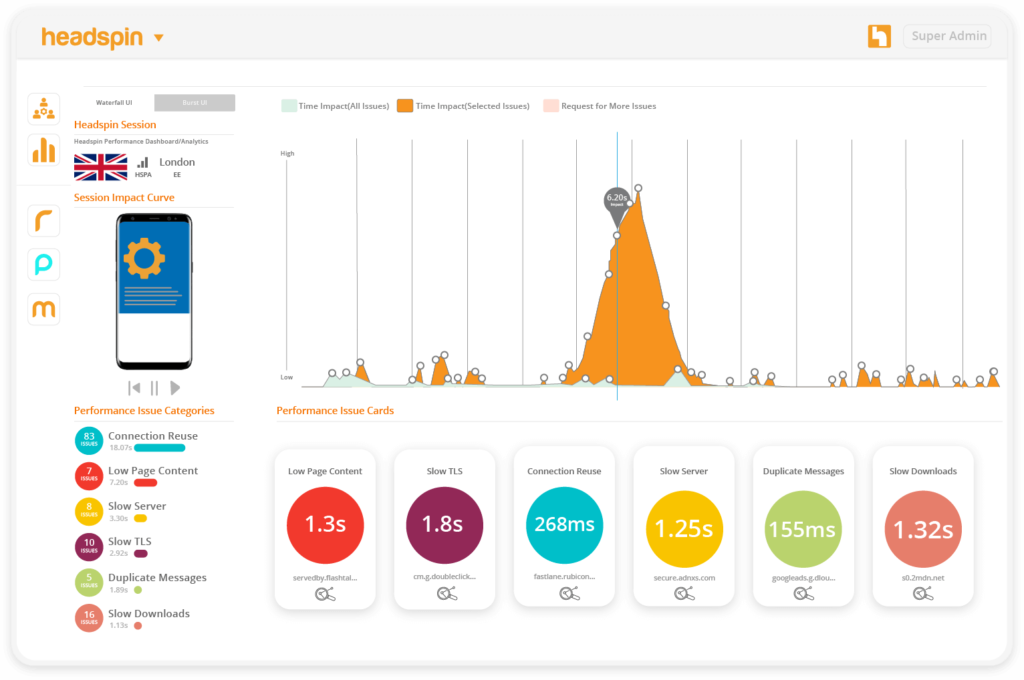10 Mobile Application Testing Tools Shortlist
Here's my pick of the 10 best software from the 20 tools reviewed.
Our one-on-one guidance will help you find the perfect fit.
With so many different mobile application testing tools available, figuring out which is right for you is tough. You know you want to test the functionality, usability, and performance of your mobile apps but need to figure out which tool is best. I've got you! In this post I'll help make your choice easy, sharing my personal experiences using dozens of different testing tools with a variety of teams and projects, with my picks of the best mobile application testing tools.
Why Trust Our Mobile Application Testing Tools Reviews?
We’ve been testing and reviewing mobile application testing tools since 2021. As QA software testers ourselves, we know how critical and difficult it is to make the right decision when selecting software.
We invest in deep research to help our audience make better software purchasing decisions. We’ve tested more than 2,000 tools for different use cases and written over 1,000 comprehensive software reviews. Learn how we stay transparent & our mobile application testing tools review methodology.
Summary Of The Best Mobile Application Testing Tools
Here’s my side-by-side comparison chart to help you see how each tool stacks up to the rest at a glance.
| Tool | Best For | Trial Info | Price | ||
|---|---|---|---|---|---|
| 1 | Best for performance testing led by experts | Free demo available | Pricing upon request | Website | |
| 2 | Best for codeless mobile test automation | Free trial + free demo available | Pricing upon request | Website | |
| 3 | Best for real-world condition testing | Free plan available | From $25/month (billed annually) | Website | |
| 4 | Best for cross-browser compatibility testing | Free plan available + free demo | From $15/user/month (billed annually) | Website | |
| 5 | Best for testing on 3000+ real devices and browsers | Free trial available | From $15/user/month (billed annually) | Website | |
| 6 | Best for AI-based geolocation and performance testing tool with thousands of devices | Free demo available | From $99/user/month | Website | |
| 7 | Best for AI-driven test management | Not available | Pricing upon request | Website | |
| 8 | Best to correlate backend and frontend | Free plan + demo available | Pricing upon request | Website | |
| 9 | Best for no code mobile test automation | 14-day free trial + free demo | From $175/month | Website | |
| 10 | Best for visual regression detection | 3-month free trial | Pricing upon request | Website |
How To Choose Mobile Application Testing Tools
With so many different mobile application testing tools available, it can be challenging to make decisions on what tools are going to be the best fit for your needs.
As you're shortlisting, trialing, and selecting mobile application testing tools, consider:
- What problem are you trying to solve - Start by identifying the mobile application testing tool feature gap you're trying to fill to clarify the features and functionality the tool needs to provide.
- Who will need to use it - To evaluate cost and requirements, consider who'll be using the software and how many licenses you'll need. You'll need to evaluate if it'll just be the QA software testers or the whole organization that will require access. When that's clear, it's worth considering if you're prioritizing ease of use for all or speed for your mobile application testing tool power users.
- What other tools it needs to work with - Clarify what tools you're replacing, what tools are staying, and the tools you'll need to integrate with, such as other testing tools, automation tools, or bug tracking software. You'll need to decide if the tools will need to integrate together or if you can replace multiple tools with one consolidated mobile application testing tool.
- What outcomes are important - Consider the result that the software needs to deliver to be considered a success. Consider what capability you want to gain or what you want to improve and how you will be measuring success. For example, an outcome could be the ability to get greater visibility into performance. You could compare mobile application testing tool features until you’re blue in the face but if you aren’t thinking about the outcomes you want to drive, you could be wasting a lot of valuable time.
- How it would work within your organization - Consider the software selection alongside your workflows and delivery methodology. Evaluate what's working well, and the areas that are causing issues that need to be addressed. Remember every business is different — don’t assume that because a tool is popular that it'll work in your organization.
-

Docker
Visit WebsiteThis is an aggregated rating for this tool including ratings from Crozdesk users and ratings from other sites.4.6 -

Pulumi
Visit WebsiteThis is an aggregated rating for this tool including ratings from Crozdesk users and ratings from other sites.4.8 -

GitHub Actions
Visit Website
Best Mobile Application Testing Tools Reviews
Here’s a brief description of each mobile application testing tool to showcase each tool’s best use case, some noteworthy features, and screenshots to give a snapshot of the user interface.
QA Wolf is a test automation platform and service designed to streamline the testing process for both web and mobile applications. Leveraging the power of the Playwright framework, QA Wolf automates the creation, execution, and maintenance of tests, ensuring robust end-to-end testing.
QA Wolf stands out as a mobile application testing tool for its performance testing capabilities. It thoroughly evaluates mobile applications' performance, including page and component rendering times, CRUD operations, and API response times. The platform sets benchmarks and closely monitors test results to ensure optimal performance across different devices and traffic loads.
Furthermore, QA Wolf offers ongoing test maintenance and expert support. The platform's QA experts are available around the clock to monitor tests, identify issues, and make necessary adjustments. This proactive approach ensures that tests remain relevant and effective as the mobile application evolves.
QA Wolf integrates with Jira, Asana, Linear, Slack, Microsoft Teams, GitHub, GitLab, Bitbucket, Jenkins, CircleCI, Travis CI, and Azure DevOps.
Tricentis Testim Mobile is a tool designed for mobile app testing that enables the automation of tests without requiring coding skills. It stands out for its codeless test automation capabilities, which positions it as an ideal solution for teams that prioritize efficient and straightforward testing processes for mobile applications.
I selected Tricentis Testim Mobile due to its emphasis on codeless test automation and its user-friendly interface, which allows for the rapid creation of stable tests. This tool distinguishes itself by enabling teams to efficiently validate the quality of mobile applications without requiring deep coding expertise. I believe Tricentis Testim Mobile is best suited for codeless mobile test automation because it provides extensive support resources, including comprehensive documentation and video learning courses, which facilitate a smooth testing process.
Tricentis Testim Mobile provides a codeless test authoring environment through a visual test recorder, enabling the creation of automated tests for mobile applications without writing code. It includes visual testing to ensure visual consistency across devices and operating systems, and real device testing to assess application performance in real-world conditions.
Integrations include Bamboo, Azure DevOps, Circle CI, Jenkins, GitHub, Saucelabs, LambdaTest, and Bitbucket. If you cannot find the app you are looking for, you can also use its REST API to build custom integrations with your tech stack.
Pricing starts at $450/month, and a free version is available.
TestGrid is a cloud-based platform that lets you run manual and automated tests on real Android and iOS devices.
TestGrid's real device lab provides access to hundreds of real devices, including brands like Apple, Samsung, and Google. This feature allows you to test your app under real-world conditions, such as varying battery life, network strength, and lighting situations, ensuring your app performs well for all users.
Another benefit is TestGrid's codeless automation. This AI-powered feature lets you create and run automated tests without writing code, making it accessible for team members who aren't coding experts. This approach speeds up the testing process, allowing you to focus on delivering quality software faster.
Integrations include Jira, Slack, Microsoft Teams, Selenium IDE, Katalon, Ranorex, Tosca, WebDriverIO, TestComplete by SmartBear, Bitrise, Travis CI, and CircleCI.
LambdaTest is a comprehensive cross-browser testing platform that enables testing on over 3000 real mobile and desktop browsers. It stands out for ensuring cross-browser compatibility, which is critical for delivering a consistent user experience across different mobile devices and browsers.
I included LambdaTest in this list after evaluating its comprehensive feature set, which includes testing on a real device cloud, iOS simulators, and Android emulators, along with its integration capabilities with various automation frameworks. What differentiates LambdaTest is its provision for live-interactive app testing on actual Android and iOS devices, coupled with AI-driven automated visual UI testing on the cloud.
LambdaTest covers a broad range of browsers and mobile devices and simplifies the cross-browser compatibility testing process. For mobile app testing, LambdaTest offers both native mobile app testing and a real device cloud. It also includes visual regression testing, test intelligence for AI-powered insights, and an automation testing cloud.
Other notable features include Smart TV testing, secure local testing with Underpass, and the LT Browser for responsive checks, along with test analytics for monitoring testing efforts.
Integrations include project management tools like Jira, Asana, Trello, GitHub, GitLab, and Bitbucket, CI/CD tools such as Jenkins, CircleCI, and Travis CI, and communication platforms like Slack and Microsoft Teams.
LambdaTest costs from $15/month. A free trial is also available.
When it comes to testing your app on a wide range of real devices, it’s hard to beat BrowserStack. The cloud-based solution allows for testing on 3000+ real devices and browsers. BrowserStack is a powerful solution that runs over two million tests every day across 15 global data centers.
BrowserStack offers two types of mobile app testing: App Live and App Automate.
App Live lets you interact naturally with a remote device like you would one in your hand. You can use the app in real-world conditions and inspect and debug your app as you go. App Automate lets you speed up your test cycles by running concurrent tests across thousands of devices.
BrowserStack’s most popular integrations include Selenium and Jenkins. It also integrates with a long list of CI/CD solutions, automation frameworks, and other tools.
Headspin
Best for AI-based geolocation and performance testing tool with thousands of devices
HeadSpin is a mobile app testing tool that allows users to remotely test and debug mobile, web, audio, and video applications on thousands of devices and operating systems. You can test the app in multiple scenarios and easily see any differences.
For many app developers, testing an app on a variety of new and old Android and iOS devices isn’t enough — you have to make sure the app works well around the world. HeadSpin is a great tool for testing apps globally, thanks to its geolocation testing. This type of test covers the app against any geography-dependent factors like data bandwidth and network infrastructure.
HeadSpin’s integrations include automation frameworks like Appium and Selenium, CI/CD tools like Azure and Jenkins, and Jira.
Testlio is a centralized testing platform designed to enhance software quality with AI-driven testing, real-world device access, and seamless workflow integrations. It provides engineering teams with tools to accelerate releases, expand test coverage, and improve confidence in their applications.
Testlio stands out for its AI-driven capabilities for test creation, refactoring, and execution. These features help teams reduce manual effort while maintaining test accuracy, leading to faster development cycles. With AI-powered test case generation, teams can identify potential failures earlier, ensuring mobile applications are reliable across different conditions. Additionally, Testlio offers real-time progress monitoring, giving teams visibility into the testing lifecycle and ensuring quality at every stage.
I also like Testlio for its extensive device access, which includes over 600,000 real-world and cloud-based devices. This ensures comprehensive testing across different screen sizes, operating systems, and network conditions, making it easier to identify compatibility issues before launch.
Some integrations include Jira, GitHub, Asana, monday.com, Azure DevOps, GitLab, TestRail, CircleCI, Jenkins, AWS, BrowserStack, SauceLabs, Slack, Instabug, and Shortcut.
New Relic is a mobile testing tool that is designed to help you monitor everything from the backend to the front end of your app, making it a comprehensive solution for mobile application testing.
I chose New Relic as one of the best mobile application testing tools because it offers a complete suite of features that cater to different aspects of app performance monitoring. It's not just about finding bugs and crashes, but also about understanding how your app is performing in real time and how users are interacting with it.
New Relic's user experience monitoring tools help you understand how people are interacting with your app. You can track user sessions, see which features are most popular, and even create custom dashboards to visualize the data that matters most to your business. This level of insight can help you make informed decisions about how to improve your app and keep your users happy.
New Relic integrates with over 500 apps that include cloud platforms like AWS, Google Cloud, and Microsoft Azure, CI/CD tools like Jenkins, CircleCI, and Travis CI, communication tools like Slack and PagerDuty, and other monitoring and analytics tools like Grafana, Datadog, and Splunk. It also has an API you can use to build custom integrations.
New Relic costs from $49/user/month and has a free version available with feature limitations.
Endtest is a powerful automated testing platform that simplifies the creation and execution of tests for web, mobile, and desktop applications. With its intuitive codeless interface and advanced features like self-healing tests and video recording.
Endtest provides robust capabilities for mobile testing, enabling users to create and execute tests specifically designed for mobile applications. With Endtest, users can easily create mobile test scenarios using a codeless interface, allowing for seamless interaction with mobile apps across different platforms and devices. The platform supports essential mobile testing features such as touch gestures, swipe actions, device rotation, and text input validation.
Endtest also provides integrations with mobile testing frameworks and cloud-based devices for comprehensive mobile test coverage. With its intuitive tools and extensive mobile testing capabilities, Endtest empowers users to ensure the quality and functionality of their mobile applications efficiently.
Integrations include Jenkins, GitLab, SauceLabs, BrowserStack, Bamboo, Heroku, Bitbucket, TravisCI, CircleCI, TeamCity, Azure DevOps, and other similar apps.
Endtest costs from $175/month (1-5 parallel tests).
Autify is a no-code, AI-powered platform that automates software testing for web and mobile applications. It enables you to create and execute test scenarios without writing code, making the quality assurance process more accessible for individuals with varying skill levels.
Autify's mobile app testing capabilities stand out with its AI-driven auto-repair feature. When your app's UI changes, Autify's AI detects these modifications and automatically updates the test scenarios accordingly. This means you don't have to manually adjust tests after every UI change, saving time and ensuring your tests remain reliable.
Another notable feature is Autify's visual regression testing. This tool automatically spots visual differences in your app's UI across various builds, helping you quickly identify unintended changes. By catching these discrepancies early, you can maintain a consistent user experience and address issues before they reach your users.
Other features include environment variables that let you pass data during test creation and execution and terminal operations to capture actions like shaking the device or moving the app between background and foreground states. Integrations include GitHub Actions, CircleCI, Jenkins, Bitrise, and Autify CLI.
Other Mobile Application Testing Tools
The 10 mobile testing tools above are just a small selection of the available options. Here are a few more that didn’t make the top list.
- Kobiton
For accelerated, AI-driven mobile testing
- Apptim
To validate mobile app performance in CI/CD
- testRigor
For test creation with plain English
- Mobot
Fully managed mobile testing tool
- GPT Driver
For AI-native mobile testing
- Ranorex Studio
For powerful cross-platform GUI testing for desktop, web, and mobile apps
- Appium
Open-source framework for iOS, Android, and Windows apps
- Test Project
Free, community-based end-to-end testing for web, mobile, and API apps
- BitBar
For framework agnostic testing on cloud and local devices
- Perfecto
Cloud-based continuous testing with scriptless self-healing capabilities
Related Mobile Application Testing Tool Reviews
If you still haven't found what you're looking for here, check out these tools closely related to mobile application testing tools that we've tested and evaluated.
- Automation Testing Tools
- Software Testing Tools
- Test Management Tools
- CI/CD Tools
- Incident Management Software
- Code Review Tools
Selection Criteria For Mobile Application Testing Tools
Selecting the right mobile application testing tools is crucial for ensuring the quality and performance of mobile apps across various devices and platforms. My evaluation of these tools is based on direct experience and thorough research, aimed at identifying solutions that effectively address the unique challenges of mobile testing. The criteria for choosing the best mobile application testing tools are designed to meet the specific needs of software developers and QA teams, focusing on functionality, usability, and integration capabilities.
Core Mobile Application Testing Tools Functionality: 25% of total weighting score
To be considered for inclusion on my list of the best mobile application testing tools, the solution had to support the ability to fulfill common use cases:
- Ensuring app functionality across different devices and operating systems.
- Simulating various network conditions to test app performance.
- Identifying and diagnosing UI/UX issues on different screen sizes.
- Conducting performance testing to evaluate app responsiveness and stability.
- Integrating with development tools for continuous testing and delivery.
Additional Standout Features: 25% of total weighting score
To distinguish themselves, tools must offer:
- Advanced AI and ML algorithms for predictive analytics and smarter testing.
- Cloud-based testing environments for scalable and accessible testing solutions.
- Real-time collaboration features for team-based testing efforts.
- Advanced security testing features to identify vulnerabilities.
- Support for emerging technologies such as AR/VR and IoT devices.
Usability: 10% of total weighting score
When assessing usability, important factors include:
- Intuitive design that facilitates easy navigation and operation.
- Simple setup and configuration processes.
- Customizable dashboards and reports for at-a-glance insights.
- Clear documentation and in-app guidance for new users.
Onboarding: 10% of total weighting score
Effective onboarding elements are:
- Comprehensive training materials, including walkthroughs and video tutorials.
- Starter templates and example tests to help users begin testing quickly.
- Interactive product tours and dedicated onboarding support.
- Accessible customer service and community forums for troubleshooting.
Customer Support: 10% of total weighting score
I evaluate customer support through:
- Availability of 24/7 support via multiple channels.
- Knowledgeable and responsive support staff.
- Proactive provision of updates and maintenance information.
- Community support through forums or user groups.
Value For Money: 10% of total weighting score
Value is assessed by:
- Competitive pricing relative to the features and capabilities offered.
- Flexible pricing plans that cater to teams of various sizes.
- Free trials or demo versions that allow users to evaluate the tool.
- Clear ROI through time savings, improved efficiency, and better quality outcomes.
Customer Reviews: 10% of total weighting score
In considering customer reviews, I look for:
- High overall satisfaction with tool functionality and reliability.
- Positive feedback on ease of use and learning curve.
- Success stories of improved testing efficiency and app quality.
- Constructive criticism and how the tool developers respond to feedback.
By applying these criteria meticulously, I aim to identify mobile application testing tools that not only streamline the testing process but also enhance the quality of mobile applications. The goal is to recommend tools that provide comprehensive testing capabilities, foster collaboration among team members, and ultimately contribute to the delivery of superior mobile applications.
Trends In Mobile Application Testing Tools For 2024
Mobile application testing tools continue to evolve at an unprecedented pace, driven by the relentless demand for more robust, efficient, and user-friendly applications. This evolution is mirrored in the latest product updates, press releases, and release logs from leading tools in the industry. Here’s a summary of the current trends and how they are shaping the future of mobile application testing:
- Increased Emphasis on Automation and AI: Automation features are rapidly evolving, with a significant push towards incorporating artificial intelligence and machine learning to streamline the testing process. These technologies are now being used to predict testing outcomes, automatically generate test cases, and even identify potential bugs before the test execution phase.
- Cross-Platform Testing Capabilities: As the diversity of mobile devices and operating systems continues to grow, the demand for cross-platform testing capabilities has never been higher. The latest tools are increasingly focusing on providing seamless testing experiences across multiple platforms from a single test script.
- Cloud-Based Testing Environments: There's a clear trend towards cloud-based solutions, offering testers access to a wide array of device environments without the need for physical hardware. This shift not only reduces costs but also significantly increases testing efficiency and scalability.
Rapidly Evolving Features
- Real Device and Emulator/Simulator Enhancements: The gap between real device testing and emulator/simulator accuracy is narrowing. Enhanced fidelity in simulators and more accessible real device farms are making it easier for testers to replicate user environments accurately.
- Integrated Performance Monitoring: Tools are increasingly incorporating features that allow for monitoring app performance in real-time during testing phases. This functionality is crucial for identifying and mitigating performance issues early in the development cycle.
Most Important and In Demand Features
- Comprehensive Reporting and Analytics: In-depth reporting and analytics features are in high demand, as they provide teams with actionable insights into test coverage, defect density, and other critical metrics.
- Seamless CI/CD Integration: The ability to integrate smoothly with continuous integration and continuous delivery pipelines is highly valued. This integration ensures that testing keeps pace with rapid development cycles, facilitating a DevOps approach to mobile app development.
Features Becoming Less Important
- Manual Test Case Creation: With the advent of AI-driven test generation, the need for manually creating detailed test cases is diminishing. Testers are looking for smarter ways to generate test scenarios that save time and effort.
This snapshot of the mobile application testing tool landscape highlights a clear shift towards more intelligent, efficient, and scalable testing solutions. As technology continues to advance, these trends underscore the need for tools that can adapt to the complexities of modern mobile app development, ensuring that quality remains at the forefront of the development process. For QA software testers, staying abreast of these trends is essential for choosing tools that will not only meet current testing needs but also anticipate future challenges.
What Are Mobile Application Testing Tools?
Mobile application testing tools are software applications that help test the functionality, performance, and usability of mobile apps. These tools enable testing on a variety of mobile devices and operating systems, simulating different user interactions and network conditions. They play a crucial role in ensuring that mobile applications work as expected in the diverse mobile environment.
The benefits and uses of mobile application testing tools include ensuring the quality and reliability of mobile apps. They help in detecting and fixing issues across different platforms, leading to better user experience and app performance. These tools facilitate efficient and thorough testing, which is vital in the fast-paced and varied world of mobile app development. By using these tools, developers can confidently release apps that are compatible and perform well on a wide range of mobile devices.
Features Of Mobile Application Testing Tools
Ensuring the quality and performance of your applications across various devices and platforms is crucial. Mobile application testing tools play an important role in this process, providing the necessary features to execute comprehensive software tests. Selecting the right tool requires an understanding of the key features that contribute to effective and efficient testing workflows. Here are the most important features to look for in mobile application testing tools:
- Cross-Platform Compatibility: Enables testing across multiple mobile operating systems and devices. This feature is essential to ensure that your application delivers a consistent user experience regardless of the device or platform.
- Real Device and Emulator Testing: Offers the flexibility to test applications on both real devices and Android emulators for Mac. Access to real devices helps understand how the app performs in real-world conditions, while emulators allow for quick and cost-effective testing during the development phase.
- Automated Testing Support: Automates repetitive test cases to save time and increase efficiency. Automated testing is critical for executing extensive test suites with speed and precision, especially in agile development environments.
- Continuous Integration (CI) Integration: Integrates seamlessly with CI tools to automate the testing process as part of the software development lifecycle. This feature ensures that new code commits trigger automated tests, facilitating continuous testing and delivery.
- Performance Testing Tools: Analyzes app performance under various conditions. Performance testing is crucial to identify and mitigate issues that could affect user satisfaction, such as slow load times or battery drain.
- User Interface (UI) Testing: Ensures the app's UI elements function correctly across different devices and resolutions. UI testing is vital for maintaining a high-quality user experience, particularly given the diverse range of mobile screen sizes and resolutions.
- Accessibility Testing: Evaluates the app's usability for people with disabilities. Incorporating accessibility testing is important to ensure the app is inclusive and compliant with legal standards.
- Network Simulation: Simulates various network speeds and conditions to test app performance. This feature is key to understanding how network variability impacts app functionality and user experience.
- Security Testing: Identifies vulnerabilities within the app that could compromise user data. Security testing is indispensable in protecting sensitive information and maintaining user trust.
- Detailed Reporting and Analytics: Provides comprehensive reports on test results, including logs, screenshots, and performance metrics. Effective reporting is crucial for quickly identifying issues and making informed decisions during the development process.
Selecting a mobile application testing tool with these features ensures a thorough and efficient testing process. It not only helps in identifying potential issues before the app reaches the end-users but also streamlines the development workflow, ultimately contributing to the delivery of a high-quality mobile application.
Benefits Of Mobile Application Testing Tools
Mobile applications have become a critical touchpoint between businesses and their customers. Ensuring these applications function flawlessly across various devices and platforms is not just a necessity but a competitive advantage. Mobile application testing tools are designed to address this challenge, providing a suite of functionalities tailored to improve the quality, performance, and user experience of mobile apps. Here are five primary benefits that these tools offer to users and organizations:
- Enhanced Quality Assurance: These tools enable thorough testing of the app across multiple devices and operating systems, ensuring high quality and functionality. Mobile crash reporting tools help in identifying and allowing for the correction of bugs before release, so that businesses can maintain a strong reputation for quality in the marketplace.
- Increased Testing Efficiency: Automation features within these tools significantly speed up the testing process, enabling faster release cycles. This efficiency allows businesses to bring their products to market more quickly, staying ahead of competition and meeting consumer expectations for rapid innovation.
- Improved User Experience: By facilitating detailed UI/UX testing, these tools help ensure that the app meets the high standards of modern users for intuitive design and seamless functionality. A superior user experience leads to higher engagement rates, increased retention, and positive word-of-mouth.
- Cost Reduction: Cloud-based testing and device emulation reduce the need for physical devices, lowering the costs associated with maintaining a diverse inventory of hardware for testing purposes. This cost-effectiveness enables even small and medium-sized businesses to perform comprehensive testing without significant investment.
- Risk Mitigation: Security testing capabilities help identify vulnerabilities that could compromise user data, mitigating legal and reputational risks associated with data breaches. By ensuring the security of their apps, organizations protect their customers and themselves from the potential fallout of security failures.
Costs & Pricing For Mobile Application Testing Tools
Choosing the right mobile application testing tool is a critical decision that can significantly impact the efficiency and success of your software testing strategy. With a variety of tools available in the market, each offering different features and pricing plans, it's important to select one that aligns with your project requirements, team size, and budget. To assist in this process, I've compiled an overview of typical plan options and pricing for mobile application testing tools, aimed at helping software buyers navigate their options.
Plan Comparison Table For Mobile Application Testing Tools
| Plan Type | Average Price | Common Features Included |
|---|---|---|
| Basic | $20 - $100 per month | Access to core testing features, limited device access, manual testing capabilities, basic reporting tools |
| Professional | $100 - $300 per month | Expanded device access, automated testing features, integration with CI/CD tools, advanced reporting |
| Enterprise | $300 - $1,000+ per month | Unlimited device access, full automation suite, dedicated support, custom integrations, comprehensive analytics |
| Free | $0 | Limited feature access, minimal device availability, basic manual testing capabilities, community support |
When selecting a mobile application testing tool, consider the scale of your testing needs and the level of support you anticipate requiring. Balancing the comprehensiveness of features against the cost will ensure you choose a plan that offers the best value for your organization.
Mobile Application Testing Tools Frequently Asked Questions
Here were a few questions I wanted to answer before I send you on your way.
What are the types of mobile application testing tools?
Mobile application testing tools are essential for ensuring that apps meet quality standards across various devices and operating systems. These tools can be categorized based on their functionality, the type of testing they support, and how they are deployed. Understanding the types of mobile application testing tools is crucial for selecting the right ones to meet your specific testing needs. Here are the main types:
Automated Testing Tools: These tools automate the execution of test cases without human intervention, significantly speeding up the testing process and ensuring consistency. They are ideal for repetitive tasks and regression testing.
Manual Testing Tools: Manual testing tools support testers in manually executing test cases on mobile devices. These tools often provide features to help organize, manage, and document the results of manual tests.
Performance Testing Tools: Focused on evaluating the performance of a mobile application, including its responsiveness, speed, resource usage, and stability under different conditions (e.g., network speeds, device battery levels).
Cross-Platform Testing Tools: Designed to test applications across multiple mobile operating systems and device configurations from a single test suite. These tools help ensure app compatibility and consistent user experience across diverse mobile ecosystems.
Cloud-Based Mobile Testing Tools: Offer access to a wide range of mobile devices hosted in the cloud, allowing testers to run tests on multiple devices simultaneously without needing physical access to them. This type is beneficial for testing apps on a large variety of devices and configurations.
Device Emulation/Simulation Tools: Provide virtual environments that mimic various mobile devices, operating systems, and network conditions, enabling testers to simulate and test mobile apps without physical devices. These tools are useful for early-stage testing and scenarios where testing on real devices is not feasible.
UI/UX Testing Tools: Specialize in testing the user interface and user experience of mobile applications. These tools help ensure that the app is intuitive, accessible, and delivers a high-quality user experience.
Security Testing Tools: Focus on identifying vulnerabilities in mobile apps that could compromise user data or the integrity of the app. These tools test for issues like insecure data storage, weak encryption, and susceptibility to attacks.
Accessibility Testing Tools: Ensure that mobile applications are accessible to users with disabilities, testing for compliance with accessibility standards and guidelines. These tools help developers make apps usable for a wider audience.
Beta Testing/Feedback Tools: Facilitate the distribution of pre-release versions of mobile apps to selected users for real-world testing, collecting feedback on app performance, bugs, and user experience before the final release.
Selecting the right combination of mobile application testing tools depends on your app’s specific requirements, the development methodology, the target audience, and the platforms you are targeting. By understanding the strengths and limitations of each type of tool, teams can build a comprehensive testing strategy that ensures thorough coverage and high-quality outcomes for their mobile applications.
Are mobile application testing tools compatible with both native and hybrid apps?
Mobile application testing tools are designed to support both native and hybrid apps, ensuring comprehensive testing coverage. While native apps are built for specific platforms using platform-specific programming languages, hybrid apps are essentially web applications in a native app shell. Testing tools adapt their methodologies to evaluate the functionality, performance, and user experience on both types of applications effectively.
How do mobile application testing tools support accessibility testing?
Accessibility testing is crucial to ensure apps are usable by people with various disabilities. Mobile application testing tools provide features to assess app compliance with accessibility standards, such as screen reader compatibility and color contrast ratios. These tools help identify and rectify accessibility barriers, ensuring the app is accessible to all users.
Can mobile application testing tools integrate with CI/CD pipelines?
Yes, modern mobile application testing tools can integrate seamlessly with CI/CD pipelines, automating the testing process within the software development lifecycle. This integration enables continuous testing, immediate feedback on code changes, and faster delivery of quality mobile applications.
What’s the difference between mobile app testing and web app testing?
Web application testing is used to test apps that can be accessed via web browser. On the other hand, mobile application testing is used to test apps that are downloaded onto a mobile device such as an android device or an iOS device.
Apps that are developed specifically for mobile devices are unique from web apps. And mobile apps developed for specific devices are unique from one another. That’s why there are specialized android app testing tools and iOS app testing tools.
How do I perform mobile app testing?
How you test your mobile application will ultimately depend on what your goals are with testing it, and what your priorities are for improving it. You can also choose to do your testing manually or opt to automate your mobile app testing. And if you’d like to alleviate your team’s load or if you’re lacking the resources to test your app as in-depth as you’d like, you can also look into a mobile app testing service provider.
Conclusion
Providing an exceptional user experience is essential for modern mobile applications. These days, people just won’t use your app if it’s not fast, efficient, and delivering immediate value. Using the mobile application testing tools listed above means delivering the kind of experience users have come to expect.
Want to discover more great tools for your DevOps team? Subscribe to the QA Lead newsletter! We send out our latest software reviews, industry insights, and expert opinions on all things software development and QA.























